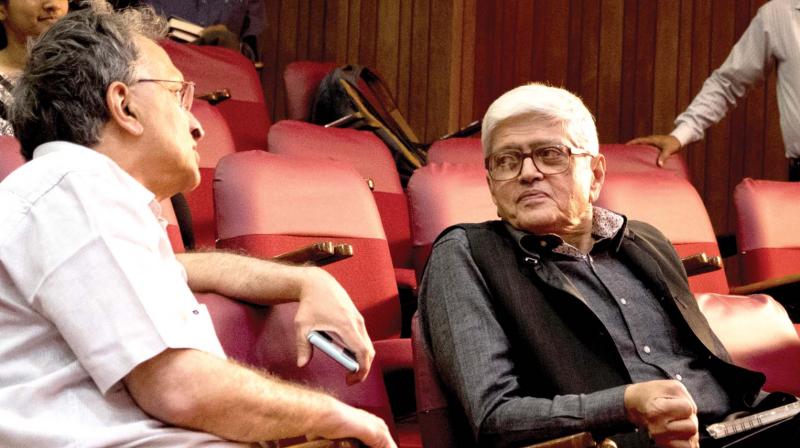Swachh Bharat a dirty drive: Gopalkrishna Gandhi

Bengaluru: Renowned diplomat and former governor of West Bengal, Gopalkrishna Gandhi tore into the Swacch Bharat movement here on Monday, describing its method of "printing notes and building toilets" as "headless, leaderless and soulless." Instead, giving people a sense of responsibility for their own waste, he says, teaching them "where it goes and what happens to it there" is of the essence.
In his address, which ranged from organized cleaning systems for the Railways to a policy that supports a complete ban on plastic, Dr Gandhi explained the vast network that comprises the Indian system and the need for a good leader to hold the fabric together. The qualities of this leadership are different from what they were in the past, he added. "Sacrifice and sincerity in commitment and selflessness in charisma marked the leadership of the past Today, it is defined by the secrecy of its money transactions, the sordidness of its misinformation and its sinister manipulation."
Drawing from instances in the nation's history and how leaders have emerged, he acknowledged that most have stemmed from crisis situations, agrarian or otherwise. Vinovha Bhave's Bhoodan, Kerala's Micha Bhoomi Samaramand, the recent movement in Gujarat led by militant revolutionary Jignesh Mevani are all examples of this, he said. Mainstream cinema has a large role to play in the dominant narratives that emerge from these accounts, he explained, adding, "And it has its originals and its dupes."
‘Leader must know how to say sorry’
The rail accident in 1956 led to Lal Bahadur Shastri resigning from office. "That was an act of moral self-accountablity, one that still stands tall," he said. "V.V. Giri quit Nehru's Cabinet as Labour Minister over the Right to Strike. That too was an act of ideological responsibility." ' India needs a leader who will stand for the nation as a whole, not mere fragments. The leader must be trusted as being backed by the right intentions, as one who will choose the best methods and follow the right instincts. These involve neither pleasing everyone, or making the decision that has the right endorsements. "The leader should know how to say sorry and admit to having made a mistake, with scorching honesty, as he tries to work towards the good," he said.
The one-hour long lecture was titled 'Who Leads India?' as part of the 'Resurrecting The Public' lecture series organised by Azim Premji University.

